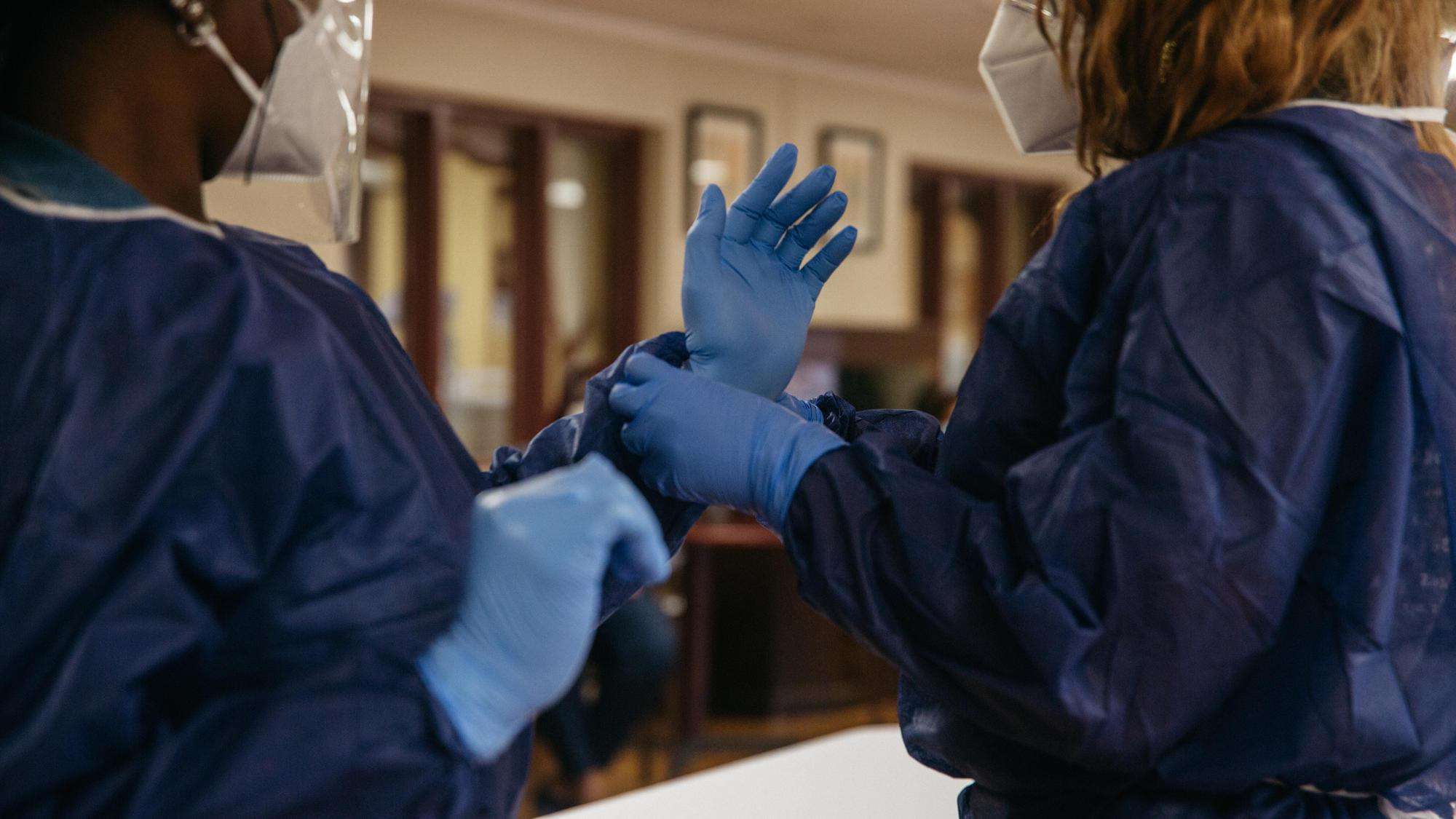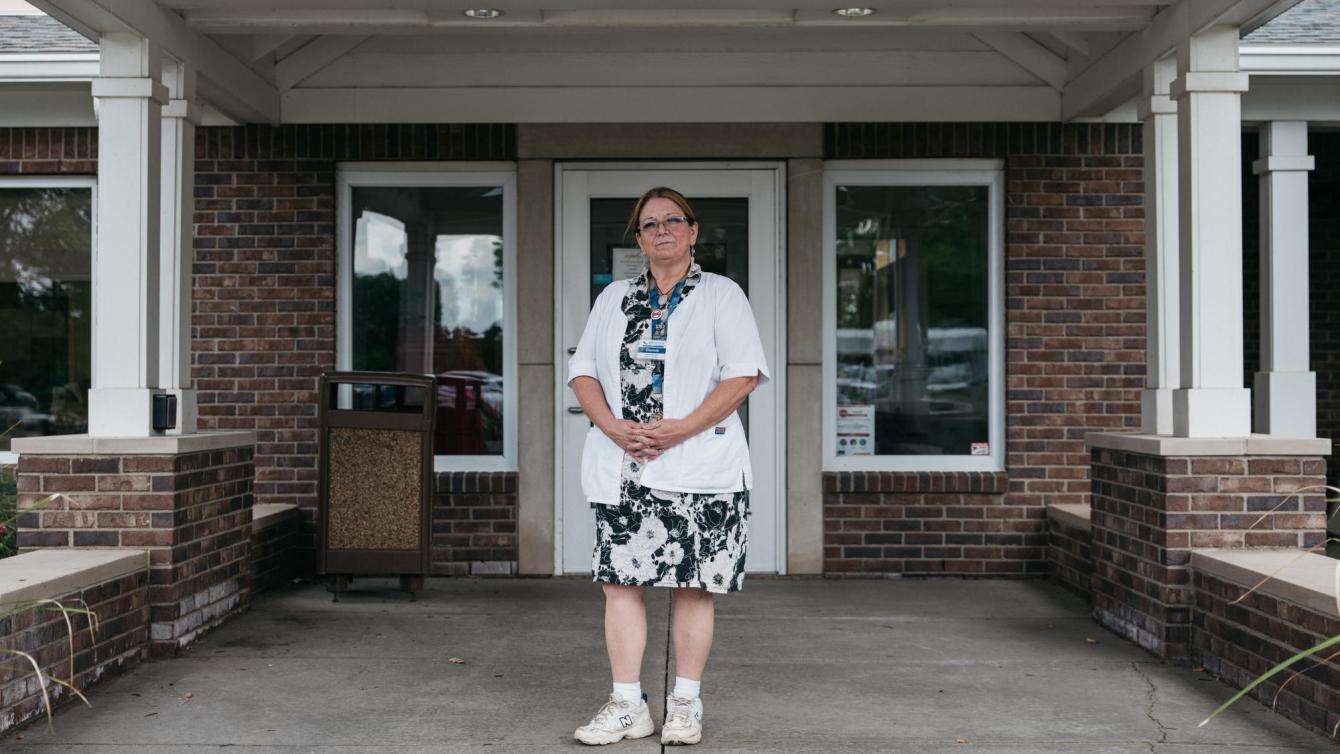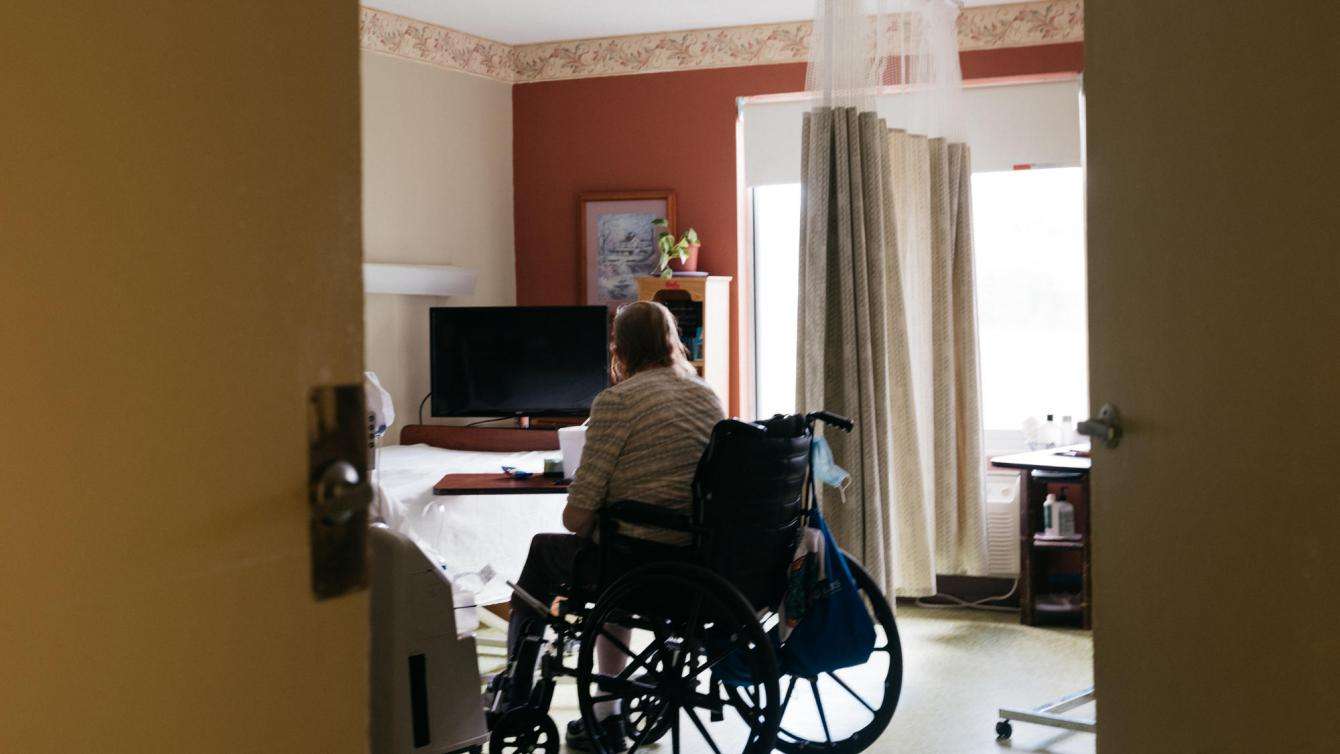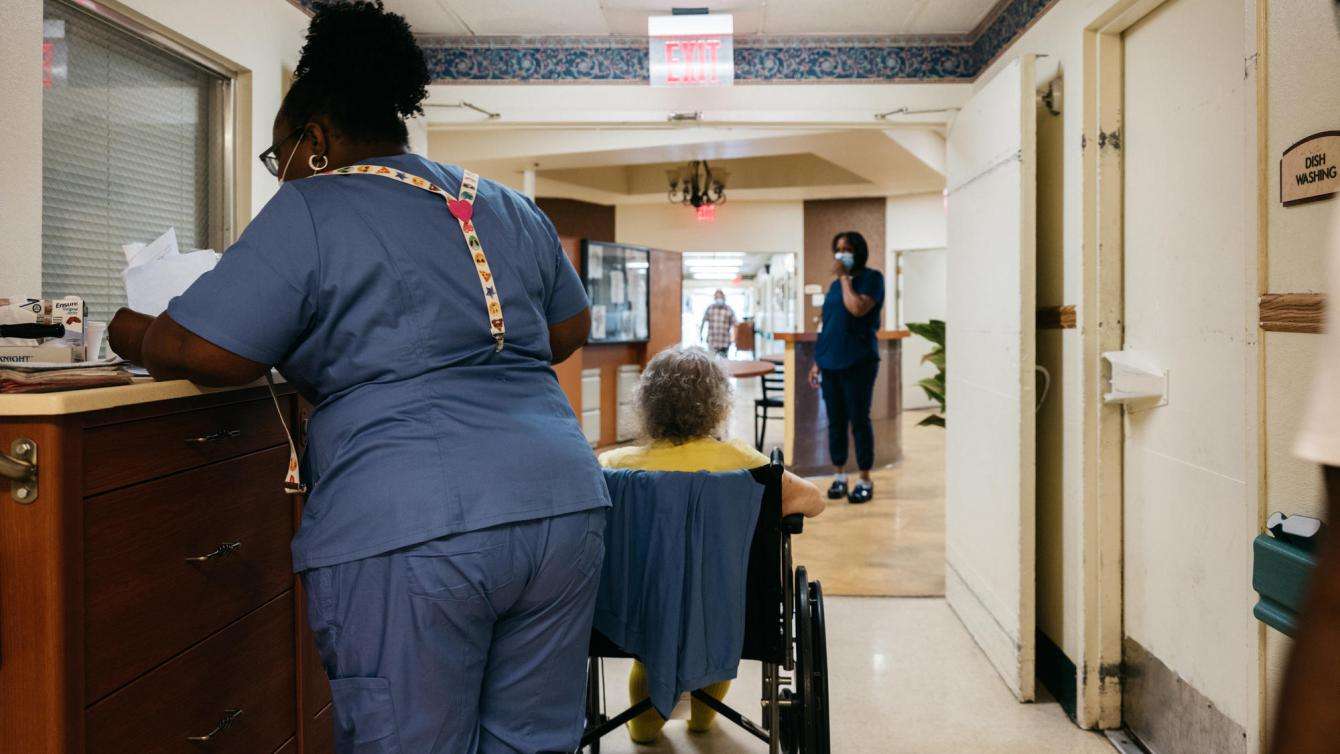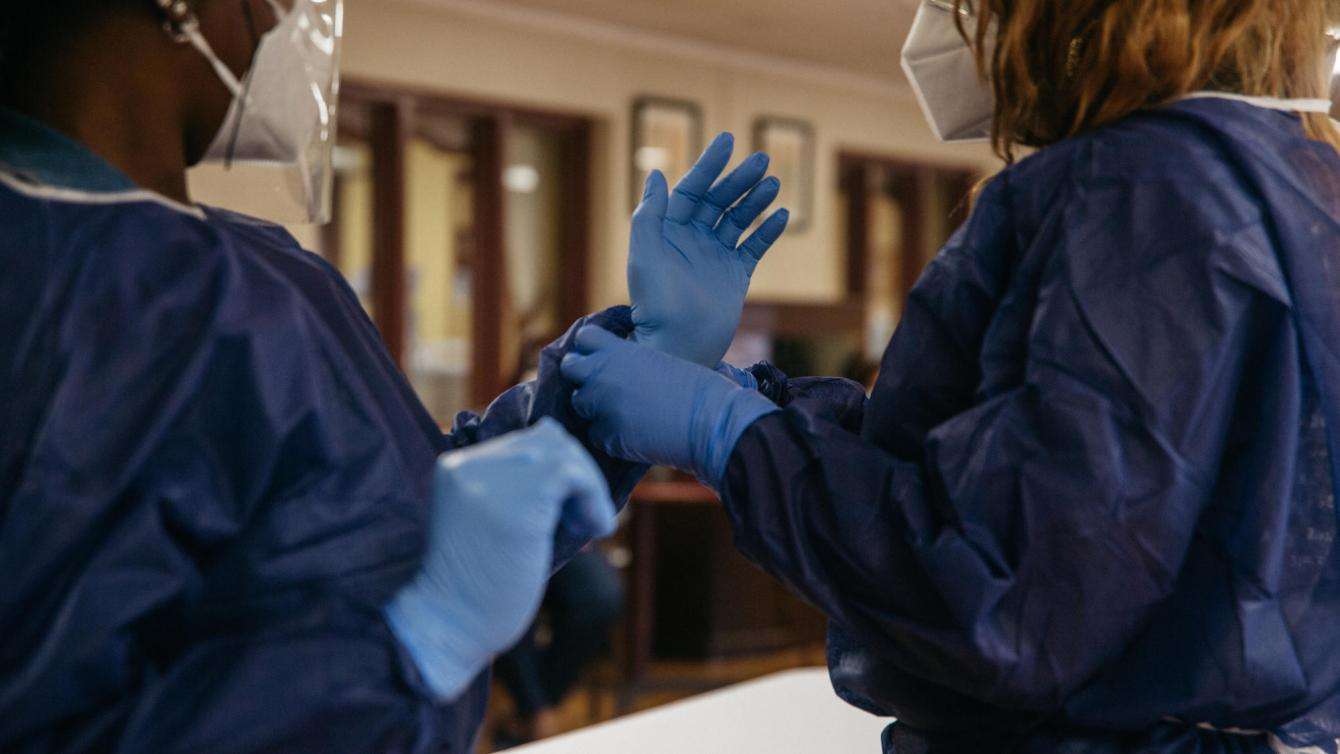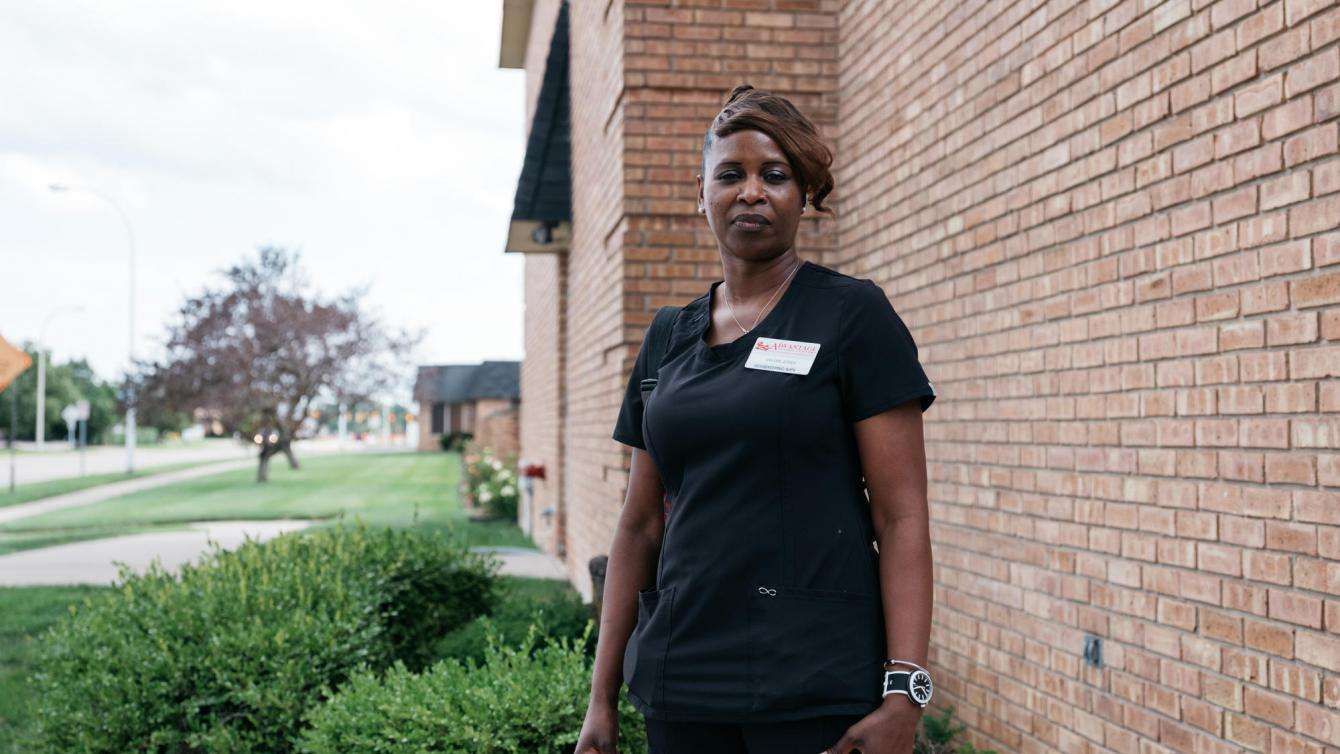Detroit, Michigan, August 4, 2020—The COVID-19 pandemic has wrought a disproportionate toll on one of society’s most vulnerable communities: elderly people living in long-term care facilities. In Michigan, where the international medical humanitarian organization Doctors Without Borders/Médecins Sans Frontières (MSF) has worked for the last two months, more than 7,500 residents have tested positive for COVID-19 and more than 2,000 have died, representing nearly a third of all deaths in the state. This reflects reports of high nursing home deaths from COVID-19 nationwide.
Building on decades of epidemic-response experience, and on more recent experience gained assisting care homes in Europe and South America, MSF supported more than 50 long-term care facilities—including 31 nursing homes and 24 adult foster care homes—in Michigan between the end of May and July 31.
“We saw COVID-19 trigger an acute crisis on top of chronic neglect and lack of support to long-term care facilities,” said Heather Pagano, MSF’s emergency coordinator in Michigan. “At the start of the pandemic, long-term care facilities were left to fend for themselves without protective equipment or adequate infection prevention and control (IPC) training. Staff told us that they were overwhelmed and confused, drowning in guidance and regulations on safety measures from many sources, but without the on-the-ground support that can make all the difference.”
MSF mobile teams in Michigan provided direct, in-person support to improve IPC measures. The most common topics that MSF addressed involved proper separation of confirmed, potentially exposed, or newly-arrived residents, hand hygiene, and proper use of personal protective equipment. These measures help to reduce COVID-19 transmission in shared spaces. Practical trainings are essential for non-clinical staff as well as clinical staff. This is especially true for environmental services staff who have a pivotal role in infection control, but often do not receive dedicated training.
Helping understaffed and overworked teams cope during a time of heightened emotional stress about the constant risk of COVID-19 for staff and residents was another key priority for MSF. MSF’s wellness officer engaged in active listening using a trauma-informed approach and provided stress-reduction techniques to staff and residents. Tools and short activities that the staff could use for self-help or for boosting the morale of the residents were also suggested.
Long-term care facility staff face a dual burden: anxiety and grief in their day-to-day reality, having lost colleagues and residents to COVID-19, while simultaneously enduring stigma in their sector.
“We were terrified, but we had 100 souls counting on us and we couldn't just walk away and lock ourselves in our home like everybody else was told to do,” said Connie Flanigan, director of nursing at Advantage Wayne in Detroit. “We had to figure out a way to get out here and take care of these souls.”
“When I hear something that someone says about the nursing homes, I take that to heart because I work very hard,” Flanigan said. “My heart is here. I would like the public to know that when you can't be here to be their family, we are. And we choose to be. We spend 12 and 14 hours a day here, because this is where we want to be.”
Regulation and oversight play an important role in protecting residents and staff of long-term care facilities. However, punitive measures alone will not help under-resourced nursing homes perform better, nor will they address the challenges presented by this unprecedented global pandemic. In-person support is fundamental.
“Just being there, in person, helping alongside the staff made a difference,” said Pagano. “Saying you're not alone, we're not here to punish you, we're here to be in support with you–this indirectly provided its own mental health benefits.”
Nationally, nursing homes in which black and Latinx people make up a significant portion of residents have been twice as likely to have a COVID-19 case, according to an analysis of state and local data by the New York Times. This mirrors the general COVID-19 data from Michigan, where African Americans make up 14 percent of the population, yet represent one-third of positive cases and 40 percent of deaths, according to the Michigan Department of Health and Human Services. Decision makers need to commit to a comprehensive COVID-19 response plan that addresses racial health disparities, particularly in the long-term care sector as it faces staff shortages and an increased work burden, said MSF.
One way of addressing racial health disparities is to ensure that at-risk groups receive critical public health information in their community and in their preferred language. To help address lower rates of testing and COVID-19 related questions gathered from Latinx communities in Michigan, MSF launched a bilingual English/Spanish digital campaign via social media. The campaign included information on where and how to get tested—regardless of immigration status—and reached more than 300,000 people in three weeks.
As the MSF team departed Michigan at the end of July, continuity of this model of on-site support was promoted. MSF has prepared an actionable toolkit that schools of nursing can incorporate into their public health curriculum. It is hoped that the program piloted in Michigan can be adopted by schools of nursing nationwide.
A second MSF team is now assessing the need for a similar program of on-site support to long-term care facilities in Texas, where the epidemiological trend is alarming.
The following is a summary of the key recommendations to prevent and mitigate the consequences of COVID-19 in skilled nursing facilities in the US that MSF has proposed to health departments and policy-makers:
- Provide direct, hands-on on-site support for skilled nursing facilities. This includes one-on-one coaching, targeted refresher courses and practical training sessions on infection control for all staff.
- Develop a more collaborative oversight process with on-site training and support that is constructive and non-judgmental. Regulation plays an important role but cannot be the primary tactic to affect true behavior change and improve health outcomes for residents and staff.
- Increase support for staff wellness and improve access to mental health resources. Staff face a dual burden: stress, anxiety, grief, and fear in their day-to-day reality, having lost colleagues and residents, while simultaneously suffering stigma in their sector. This is on top of an increased workload due to the closure of the facilities to family who previously helped provide companionship and care.
- Provide clear guidance for re-opening facilities to visitors. Staff regularly report serious concerns about the cognitive decline of their residents. Loneliness and isolation also pose a great threat to their health.
- Conduct in-service trainings for non-clinical staff. Environmental services staff are the least likely to have received adequate training on infection control in their critical position, or on the proper use of personal protective equipment (PPE).
- Ensure more supportive leadership from corporate, administration, and directors of nursing. This, perhaps above all, is the key indicator of success for crucial infection control measures to be implemented to best protect residents and staff alike.
- Promptly disseminate testing results to facilities and conduct regular health education for both staff and residents regarding the rationale and importance of regular testing. Timely testing is essential for monitoring of infections and organization of care.
MSF is an international medical humanitarian organization with programs in over 70 countries. MSF teams are preparing every project where they work to be COVID-ready as the pandemic sweeps the globe. In the United States, MSF’s COVID-19 response teams worked with migrant farmworkers in Florida; helped people who are homeless and housing insecure in New York City; supported Native American communities in the Navajo Nation and Pueblos; and trained essential staff working in nursing homes and adult foster care facilities housing the elderly in Michigan. For the next two months, in Puerto Rico, three mobile medical teams will continue to provide care at patients' homes or at pop-up clinics. These teams will also see COVID-19 patients with mild or moderate symptoms.
